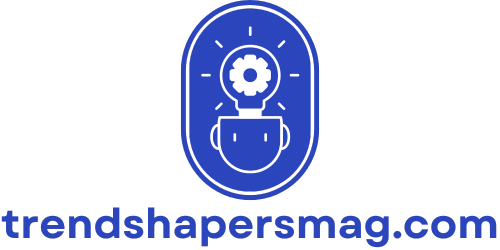Table of Contents
ToggleManaging a project without a solid budget feels a bit like trying to bake a cake without a recipe—chaos is bound to ensue. Enter project budgeting software, the unsung hero of project management. It’s like having a superpower that keeps expenses in check while ensuring everyone stays on the same page.
Overview of Project Budgeting Software
Project budgeting software centralizes financial management for project teams. This software enables accurate tracking of expenses and revenues throughout the project’s life cycle. It provides tools for forecasting future costs based on historical data and current project performance. Users can categorize expenses by type, making it easier to analyze spending patterns.
Data from a recent study indicates that effective budget management can reduce project costs by up to 15%. Moreover, teams can access real-time financial insights, allowing them to make informed decisions quickly. Many platforms integrate seamlessly with project management tools, facilitating consistency across various project parameters.
Users appreciate features like customizable templates for budget creation. Internal collaboration becomes more streamlined with shared access to financial data. Real-time updates ensure all team members are aware of budget fluctuations, fostering transparency.
Reporting functionalities within the software allow for detailed analyses of budget variances and trends. These reports help in assessing project performance against financial goals. As a result, organizations can enhance their strategic planning and resource allocation.
Selecting the right project budgeting software requires consideration of specific organizational needs. Variables such as project size, industry requirements, and team structure impact the software choice. Investing in robust budgeting solutions can lead to improved financial control and project success.
Key Features to Look For

Selecting the right project budgeting software involves identifying key features that enhance financial management and project success. Focus on user-friendly functionality, integration capabilities, and robust reporting tools.
User-Friendly Interface
A user-friendly interface simplifies navigation and enhances user adoption. Clear dashboards display real-time data, allowing teams to monitor budgets effortlessly. Color-coded charts and intuitive icons enhance visibility, making budget management accessible to all team members. Easy-to-use tools encourage collaboration by fostering engagement among users with varying technical expertise. Prioritizing simplicity can lead to faster onboarding and reduce the learning curve for new staff.
Integration Capabilities
Integration capabilities connect project budgeting software with existing tools and applications. Seamless integration with project management platforms, accounting software, and communication tools enhances efficiency. Access to centralized financial data reduces the risk of errors and improves decision-making. Leading platforms allow easy import and export of data, streamlining workflows and ensuring accurate financial reporting. These integrations support collaboration across departments, providing a unified view of project budgets.
Reporting and Analytics Tools
Reporting and analytics tools provide insights into budget performance and trends. Customizable reports allow users to analyze budget variances, highlighting areas for improvement. Visualizations of historical data facilitate informed forecasting, leading to better financial planning. Detailed analytics help identify cost-saving opportunities and improve resource allocation. Effective reporting functions support ongoing assessment, aligning project performance with financial goals and ensuring accountability throughout the project lifecycle.
Benefits of Using Project Budgeting Software
Using project budgeting software streamlines financial management, enhancing project success rates. Key advantages include improved accuracy, enhanced collaboration, and time-saving automation.
Improved Accuracy
Project budgeting software ensures precise financial tracking. Users can monitor expenses in real time and categorize transactions easily. This level of accuracy minimizes discrepancies and allows for data-driven decision-making. A report shows that effective budget management can cut project costs by as much as 15%. Accurate forecasts rely on historical data and current spending patterns, helping teams align more closely with financial goals. Users benefit from reliable metrics, enhancing their ability to predict future expenses and revenues effectively.
Enhanced Collaboration
Effective collaboration becomes simpler with project budgeting software. Features such as shared dashboards and customizable templates promote transparency among team members. Everyone gains access to real-time financial data, facilitating informed discussions about budget adjustments. Team members can work together seamlessly, addressing potential issues before they escalate. Individuals involved in the project maintain a clear understanding of financial requirements and progress, enabling more effective communication and a cohesive approach to financial management. This collective effort strengthens project alignment and improves overall accountability.
Time-Saving Automation
Time-saving automation significantly boosts efficiency within project budgeting software. Routine tasks such as expense tracking and invoicing are handled quickly, freeing users to focus on strategic planning. Automated reporting eliminates the need for manual data entry, minimizing errors and saving valuable time. Users can generate reports effortlessly, gaining insights into budget variances and cash flows instantly. This functionality not only accelerates decision-making but also enhances overall productivity within teams. By automating these processes, users maintain control over budgets while also ensuring timely updates and adjustments.
Popular Project Budgeting Software Solutions
Several project budgeting software solutions stand out in the market, offering diverse features tailored to meet organizational needs. Here are three notable options.
Software A
Software A provides comprehensive project management functionality alongside budgeting features. It enables users to set budgets, track expenses, and generate financial reports efficiently. Real-time collaboration tools enhance team communication, promoting transparency in budget management. Users particularly appreciate the detailed dashboards that simplify financial oversight. This software can integrate seamlessly with existing tools, allowing for centralized data management. Overall, its robust capabilities make it suitable for various project sizes and industries.
Software B
Software B focuses on user-friendly navigation, making budgeting accessible to all team members. Customizable templates facilitate quick setup for different types of projects. Enhanced reporting tools provide insightful analytics, helping users identify spending patterns and budget variances. This software excels in automating routine tasks, such as invoicing and expense tracking, saving valuable time. Many users find its cost-control features beneficial for maintaining financial discipline throughout projects. Its flexibility ensures it adapts to the specific requirements of numerous organizations.
Software C
Software C excels in delivering advanced forecasting capabilities based on historical data. Users can anticipate financial trends, which aids in proactive budget adjustments. The software supports multiple users, ensuring collaboration and clarity among team members. Integration with third-party tools enhances functionality by offering a holistic view of project finances. Custom reporting features allow users to tailor analyses to meet specific needs, making it versatile for different project types. Its technology empowers organizations to manage budgets with increased efficiency and precision.
Project budgeting software plays a vital role in enhancing financial management and project success. By centralizing expense tracking and offering real-time insights, it empowers teams to make informed decisions. The benefits of improved accuracy, collaboration, and automation streamline processes and foster transparency among team members.
Selecting the right software tailored to specific organizational needs can significantly impact project outcomes. With the right tools in place, teams can navigate the complexities of budgeting with confidence, ensuring projects stay on track and within budget. Investing in project budgeting software is not just a choice; it’s a strategic move toward achieving financial control and project excellence.







